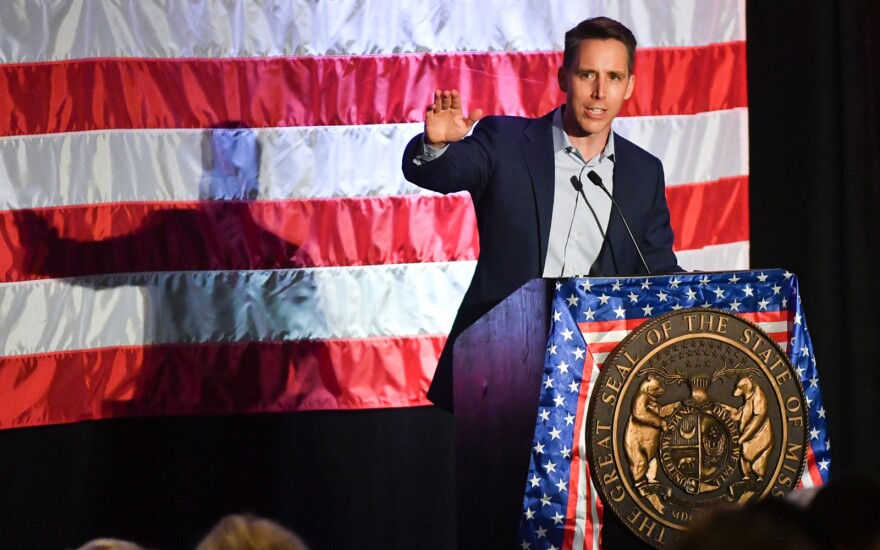A Cole County judge on Wednesday ordered the state to pay more than $240,000 in legal fees as part of a ruling that found the attorney general’s office “knowingly and purposefully” violated open records law while it was being run by now-U.S. Sen. Josh Hawley.
“A big win for transparency, election fairness and the rule of law,” Mark Pedroli, an attorney on the case and founder of the Sunshine and Government Accountability, wrote on Thursday morning.
Late last year, Cole County Judge Jon Beetem determined the attorney general’s office violated the Sunshine Law by taking steps to conceal emails between Hawley’s taxpayer-funded staff and his political consultants during his 2018 campaign for U.S. Senate.
The motivation for breaking the law, the judge concluded, was concern that releasing the records could harm Hawley’s campaign.
Beetem ordered the attorney general’s office to pay $12,000 in civil penalties — the maximum allowed under state law — plus attorney’s fees.
The plaintiffs in the case, the Democratic Senatorial Campaign Committee, asked the judge to award $306,000. Hourly rates for the attorneys involved in the litigation ranged from $550 an hour up to $1,200 an hour.
On Wednesday, Beetem awarded plaintiffs $242,385.
A spokeswoman for the attorney general’s office, which is now run by Andrew Bailey, could not be immediately reached for comment.
The emails in question were requested by the DSCC in late 2017. Hawley’s office told the DSCC at the time that it had “searched our records and found no responsive records.”
But a year after the request was denied, The Kansas City Star revealed Hawley and his staff had used private email rather than their government accounts to communicate with out-of-state political consultants who would go on to run Hawley’s U.S. Senate campaign.
Among those included in the private email discussions was Daniel Hartman, who at the time was the attorney general’s office’s custodian of records.
The DSCC filed a lawsuit in 2019.
In his November order, Beetem agreed that Hartman was aware communications responsive to the DSCC request existed and should have turned them over. It appears he didn’t, Beetem concluded, because it could have been politically damaging to Hawley.
“Then-Attorney General Hawley was actively running for U.S. Senate at the time of these requests, which were submitted by a national party committee supporting his opponent,” Beetem wrote in his ruling. “The requested documents showed — at a minimum — questionable use of government resources.”
Further, Beetem wrote, the fact that public business was being conducted on private email accounts — in violation of the attorney general’s office’s own policy — is “itself evidence of a conscious design, intent or plan to conceal these potentially controversial records from public view.”
Pedroli said that “instead of sticking taxpayers with a record verdict, Sen. Hawley should step up and apologize to the people of Missouri and donate proceeds from his ‘Manhood’ to cover the bill.”
“Manhood: The Masculine Virtues America Needs” is Hawley’s latest book, which was published earlier this year.
Kyle Plotkin, spokesman for Hawley’s campaign, called the lawsuit a “witch hunt” that was instigated by “Democrat Party bosses.”
He noted that while the attorney general’s office initially refused to turn over records that were requested, they were eventually made public voluntarily.
“The only purpose seems to have been to bilk Missouri taxpayers out of thousands and thousands of dollars,” Ploktin said. “They should return whatever money they get to the people of Missouri and apologize.”




